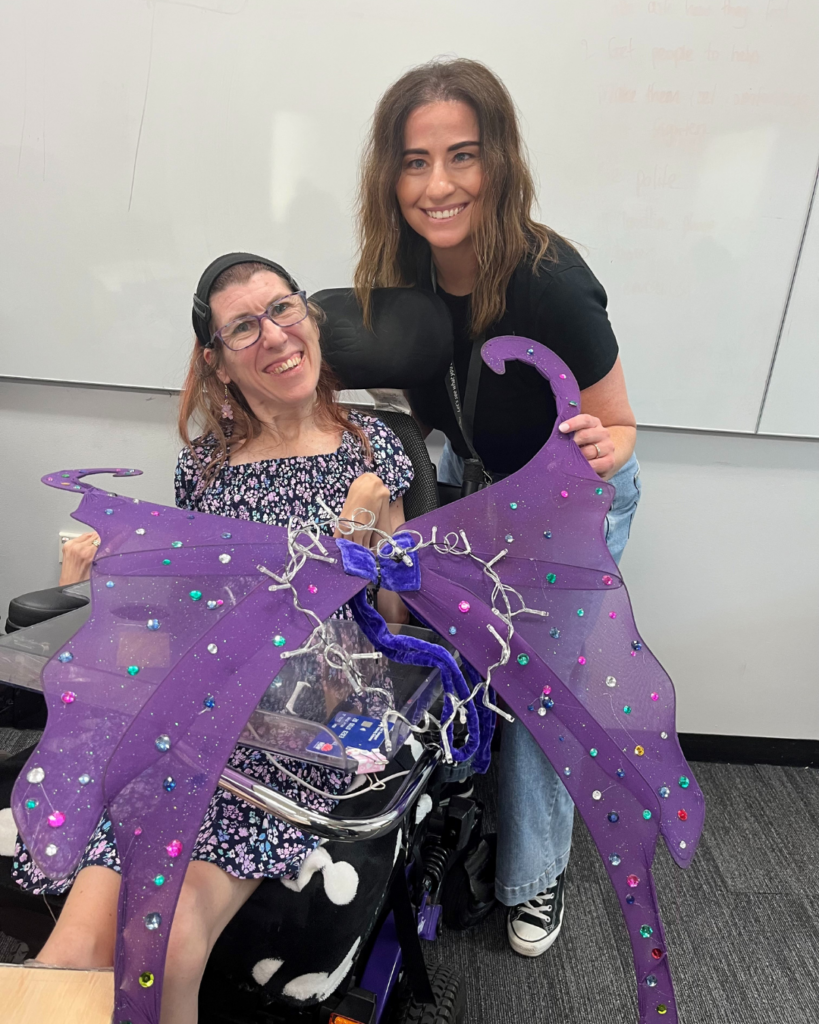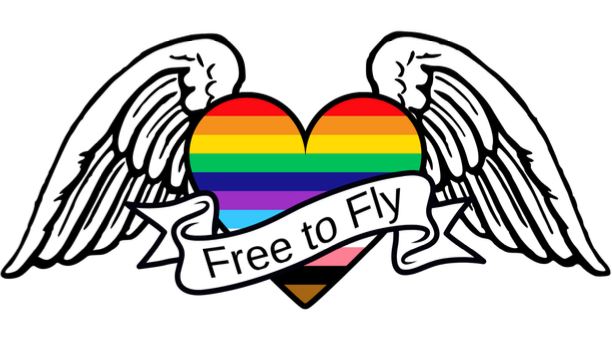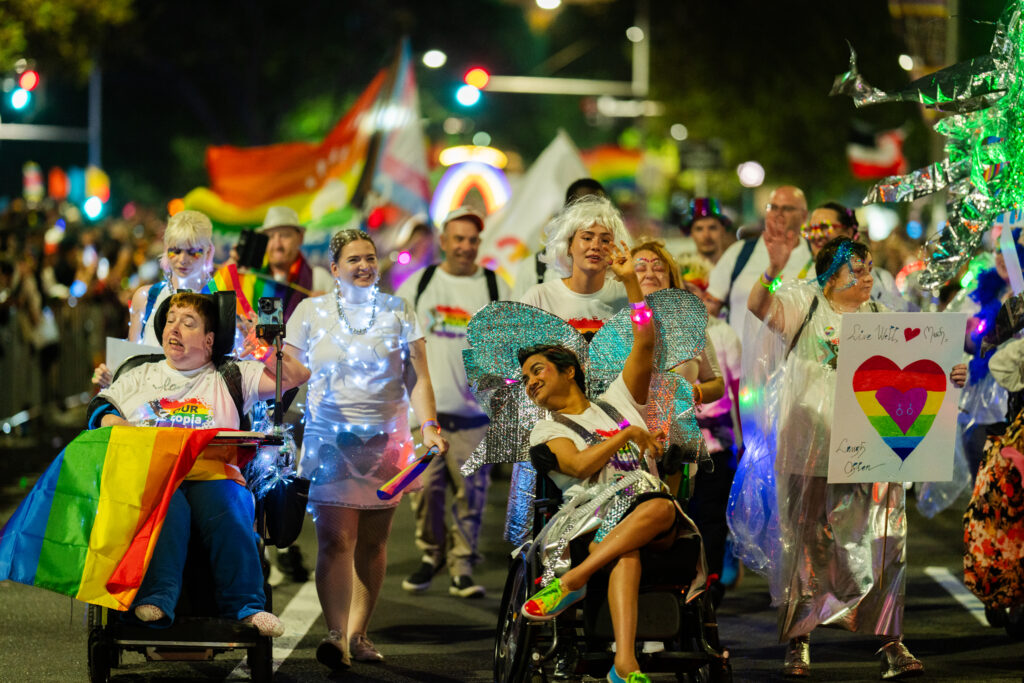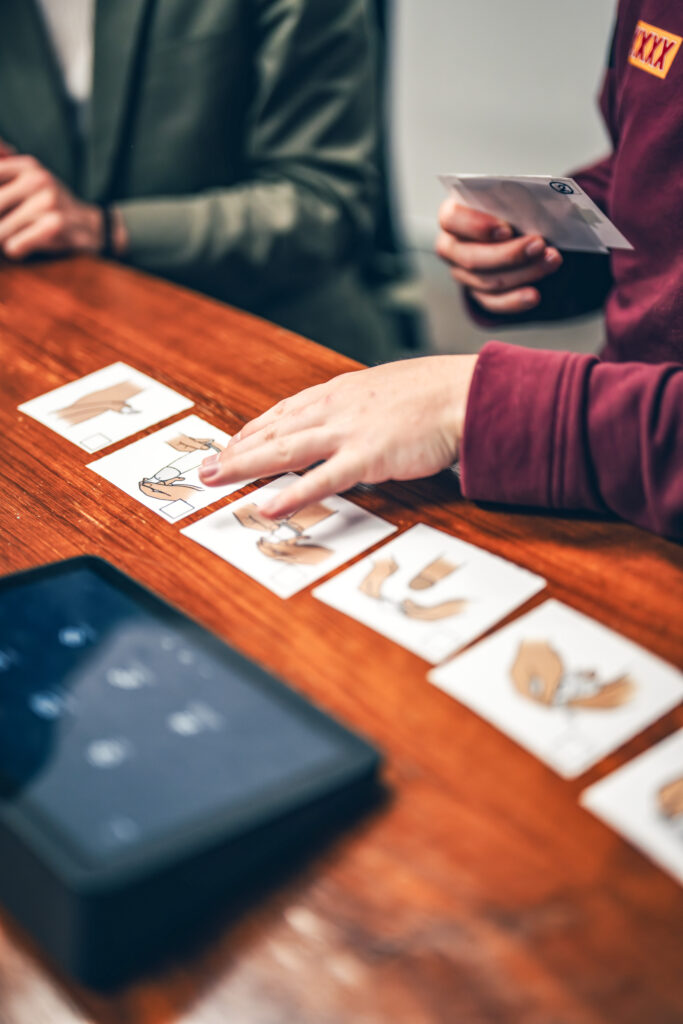We have received your message and one of our dedicated team members will respond soon
Sexuality and Relationships Education
A human-rights based clinical service, offering therapeutic support, assessment, training and education, to holistically achieve your sexuality goals and needs.
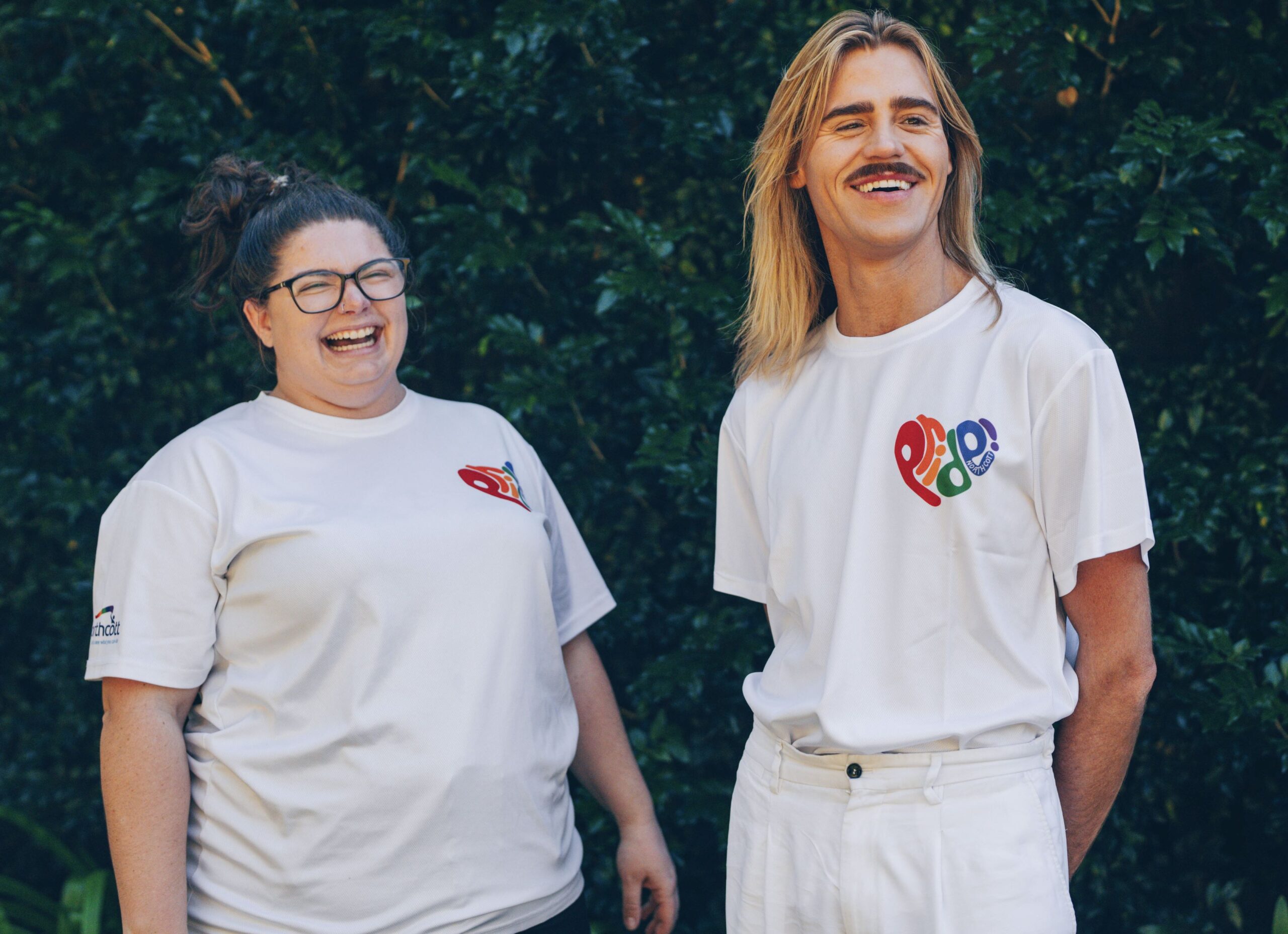
What is Sexuality?
Sexuality is complex and doesn’t have one set definition.
Our Sexuality and Relationships Education Service describes sexuality as an umbrella term that is made up of 5 different areas –
- Sensuality
- Intimacy
- Sexual Health and Reproduction
- Sexual identity
- Sexualisation and Exploitation (domestic, family and sexual violence)
It is important to know these areas, as everyone has needs in each one.
Sexuality and Relationships Education
Relationships and sexuality are natural parts of life.
Historically however, people with disability receive fewer opportunities to learn about sexuality, sexual health and sexual fulfillment. We acknowledge also that opportunity to engage in relationships is limited for people with disability.
These are important areas of human needs are often overlooked or deemed as unnecessary for people with disability, making sexuality and disability a rarely spoken about subject. We want to change that, as we know everyone, regardless of disability, has the right to –
- Engage in consensual, healthy relationships
- Make decisions about their body
- Be free from all forms of violence, including sexual and domestic violence
- Receive education about sexuality, provided in a way that they understand
- Get support and advocacy if their human rights related to sexuality are not upheld
Our service – connects people with disability, their formal and informal supports, with experienced registered Counsellors. Our Counsellors provide crucial support, assessment, training and education related to sexuality and relationships, to suit all communication needs.
-
Your Goals
Your Goals
Build Confidence
Sexual Intimacy
Sexuality
How our Sexuality and Relationship Education service can support you
Whatever your needs and goals are, you can create rewarding relationships and sexual experiences.
-
Personalised Sexuality and Relationships Education
Personalised Sexuality and Relationships Education
Our Sexuality and Relationships Education service currently provides three different services to people with disability, their formal and informal supports. These offerings provide a comprehensive wrap-around support model, to achieve the best outcomes.
Sexuality and relationship counselling
You will meet with an experienced registered counsellor, who will provide a non-judgemental and open environment to talk about things that at first might feel awkward or uncomfortable.
The sessions are 45 minutes in length, and will reoccur either weekly, fortnightly or monthly, depending on your identified goals.
In addition to general counselling modalities and intervention, the therapeutic support provided may include:
- LGBTQIA+ support
- Advocacy for human rights relating to sexuality
- Couples and family counselling
- Domestic, family and sexual violence support
- Support to access to sex services
- Assessment on sexuality and relationship knowledge
- Sexuality and relationships education
- Strategies to reduce sexualised behaviours of concern
- Training for formal supports
- Supported decision making
- NDIS reports and referral pathways for additional supports
Sexuality and Relationships Education Program
Facilitated by one of our skilled counsellors, this group program provides crucial education and support to people with disability on –
- Private body parts and their functions
- Public versus private places and behaviours
- Consent and why it is important
- Human rights related to sexuality (and how to get support)
- Different areas of sexuality and needs
- Sexual orientation and gender identity (and where to get support)
- Who can and can’t have sex (sex, consent and the law)
- Sex and different sexual activities
- The difference between good sex and bad sex (sexual violence prevention) and where to get help
- Healthy and unhealthy relationships (family and domestic violence) and where to get help
- The stages of relationships and how to navigate dating
The program can be delivered over 3 part-days, or one full-day, depending on location and accessibility needs.
Sexuality and Relationships Education – Training For Professionals Program
It can be hard to navigate how to provide rights-based support to people with disability, in relation to sexuality.
Our Training for Professionals program connects groups of people who formally support someone with disability, with an experienced sexuality and relationships counsellor, who will work with you to understand and support your customers sexuality needs .
This training can be tailored to suit the needs of the organisation by selecting from the following learning outcomes –
- Confidently communicate the sexuality and relationship needs of adults with disability, to formal and informal supports
- Recognise, respond, and refer to signs of domestic and family violence (specifically where the victims are people with disability)
- Identify and confidently advocate for the sexual and relationship rights of people with disability.
- Confidently provide safer sex education to the people they support. This includes being trained to confidently use practical resources to aid education.
- Explain sexuality and the different areas that make up a person’s sexuality.
- Identify the different sexuality needs of the people you support.
- Safely respond to sexualised behaviours of concern.
- Understand and explain consent in different ways, to suit a range of cognitive abilities.
- Identify healthy and unhealthy relationships.
- Understand and recognise unconscious bias, and how this impacts the people you support.
- Understand, identify, and explain the difference between gender expression and sexual orientation.
- Confidently support people with disability to access sex workers
- Discuss sexuality and relationships in-line with privacy and confidentiality legalisation.
- Use a supported-decision making framework to support the sexuality needs of the people you support
This training is one full-day, and can be delivered either face to face or via our secure Telehealth video call platform.
In additional to the above service offerings, our team also:
- Advocates for the sexuality rights of people with disability on a macro scale, by liaising with government bodies, and championing policy changes to accommodate the sexuality needs of people with disability
- Facilitates events to create opportunity for people with disability to develop social and romantic connections
- Is actively involved in LGBTQIA+ events, for example Mardi Gras and the World Pride Human Rights Conference
- Coordinates annual Feel the Vibe expos
Peaches and Cream – a film and educational resource addressing sexting for young adults with intellectual disability
Peaches and Cream is a short educational film addressing sexting for young adults with intellectual disability (ID). It follows the story of River and Avery, two individuals navigating intimacy and online communication in a long-distance relationship.
VALIANT – a film and education resource exploring the realities of relationships for people with disability.
Northcott is proud to have partnered with Bus Stop Films to produce VALIANT. Written and created by filmmakers and actors/talent with disability, VALIANT explores the themes of sexuality, disability, consent and relationships through four heartwarming stories. Designed as a learning tool for people with disability, and their parents, carers, and wider support network, VALIANT is accompanied by an educational guide with conversation starters and tips and advice for building healthy and safe relationships of all kinds.
NDIS Funding for Sexuality and Relationships Education
- National Disability Insurance Scheme (NDIS)
- Capacity Building – Improved Daily Living
-
Our Services
Our Services
Allied Health & Clinical
Group Support Services
Frequently asked questions about Sexuality and Relationship Education
We acknowledge that your first session may be nerve-wracking but don’t worry – our counsellors are trained to make you feel comfortable.
In your first session, you will be introduced to your counsellor. Your counsellor will tell you a little bit about themselves, and ask you some questions to get to know you and what brought you to counselling.
You will then work with your counsellor, to answer some questions about sexuality and relationships. The questions are about –
- Different types of relationships and appropriate behaviours in each
- Understanding body language
- Gender and sexual diversity
- Parts of the body
- Public and private places and behaviours
- Legal issues regarding sexuality, including consent.
- Protective behaviours
- Sexual pleasure and enjoyment
- Safer sex including contraception, conception, and abortion.
- Sexually Transmitted Infections
Think of these questions as a learning opportunity – not a test. If you don’t know the answers – it’s okay!
Your answers will help inform your counseling goals, which you and your counsellor will work on in your future sessions.
Accessing sex services is something that our counsellors can help you navigate safely, while ensuring your needs and desires remain at the forefront of the service.
Our counsellors can also assist with writing reports, as evidence to support funding for sex services to be included in your NDIS plan, depending on your circumstances and whether services are deemed as necessary and reasonable.
Additionally, you can fill in a referral through Touching Base, and they will provide you with a list of disability aware sex workers, in-line with your location, accessibility needs and service requests.
This is a common concern we hear in the SRE service. It is important to know that sex and engaging in relationships are recognised as informal decisions. For this reason, the supported decision making (SDM) framework should be applied.
This framework outlines the importance of education, to support informed decision making.
The person you are supporting should be provided with information in a way that they can understand, so they can identify the pros and cons of engaging in sexual activity. The person should also be given information on how to decrease the risks of negative consequences, such as safer sex education to decrease the risk of unwanted pregnancy or STI’s, consent education to decrease the risk of sexual violence, or education on healthy relationships to decrease the risk of domestic and family violence.
Remember, everyone has the right to pursue a fulfilling and healthy sex life, regardless of disability. Some people may just need extra support and education to put those decisions into action safely.
This is a concept that is taught in our Sexuality and Relationships – Training for Professionals Program.
Absolutely!
It is important to remember that all behaviour is a form of communication. If an individual is displaying sexualised behaviours of concern, our team of experienced clinicians will work with the individual, their formal and informal supports, to identity any areas of needs that are not being met, and provide crucial training, education and support – targeted at decreasing the specific harmful behaviours that are being displayed.
In the case where an individual is in need of additional or more intensive therapeutic support, further recommendations and referrals will be outlined in a NDIS summary report.
Related Stories
-
![People in costume]()
14 February 2025
Celebrating unity and inclusion at the Rainbow flag raising ceremony
-
![People in a a parade]()
18 December 2024
-
![A hand picking up instructional cards.]()
10 July 2024



Accessibility and Inclusivity
We respect and honour Aboriginal and Torres Strait Islander Elders past, present and future. We acknowledge the stories, traditions and living cultures of Aboriginal and Torres Strait Islander peoples on this land and commit to building a brighter future together.
Read more about our commitment to reconciliation